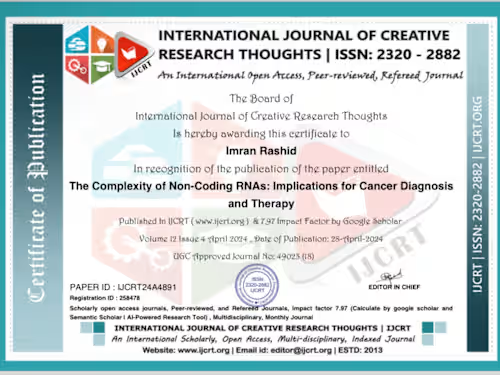
Role of Cellular Senescence in Neurodegeneration: Mechanisms.
Starting at
$
11.11
About this service
Summary
What's included
Role of Cellular Senescence in Neurodegeneration: Mechanisms and Therapeutic Implications
Cellular senescence leads to irreversible cell cycle arrest and changes in gene expression that influence several cellular processes within the central nervous system. This review comprehensively examines the impact of cellular senescence on various cell types like neurons, microglia, astrocytes and oligodendrocytes and how the accumulation of senescent cells leads to neurodegeneration. The senescence associated secretory phenotype of these cells leads to chronic neuroinflammation through the secretion of pro-inflammatory cytokines and chemokines. Senescence also impairs adult neurogenesis and myelin repair processes. With age, the numbers of senescent cells increase due to telomere shortening and mitochondrial dysfunction resulting oxidative stress. This causes a decrease in brain volume and loss of cognitive functions. Senescent vascular cells compromise the blood-brain barrier integrity exacerbating neuroinflammation. Targeting the removal of senescent cells and modulating their secretory phenotype offers new therapeutic avenues to mitigate neurodegeneration and age-related cognitive decline
Duration
3 days
Skills and tools
Industries





